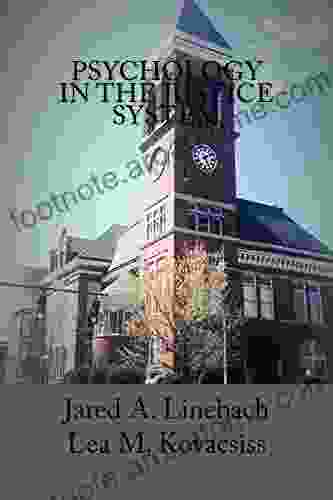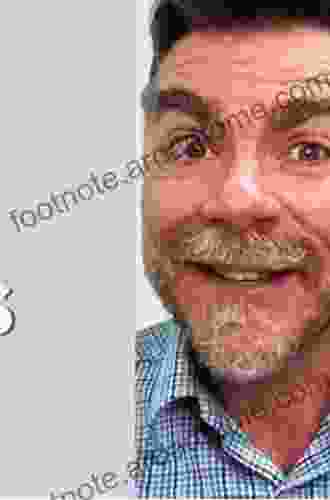Psychology in the Justice System: A Comprehensive Guide to the Mind, Law, and Crime


The intersection of psychology and the justice system has profound implications for society. With its unique lens, psychology offers invaluable insights into criminal behavior, witness testimony, jury selection, offender rehabilitation, and the mental health of those involved in the legal process. In this comprehensive guide, we will delve into the fascinating world of psychology in the justice system, exploring the key concepts, theories, and applications that shape this dynamic field.
Forensic Psychology: The Intersection of Psychology and Criminal Justice
Forensic psychology is a specialized branch of psychology that applies psychological principles to legal issues. Forensic psychologists work closely with law enforcement, attorneys, and judges to understand and assess criminal behavior, provide expert testimony, and assist in the rehabilitation of offenders.
4.5 out of 5
| Language | : | English |
| File size | : | 685 KB |
| Text-to-Speech | : | Enabled |
| Screen Reader | : | Supported |
| Enhanced typesetting | : | Enabled |
| Word Wise | : | Enabled |
| Print length | : | 167 pages |
| Lending | : | Enabled |
Criminal Profiling and Behavioral Analysis
Forensic psychologists use psychological profiling techniques to develop insights into the personality and motivations of unknown criminals. By analyzing crime scene evidence, victim statements, and other psychological data, profilers can help investigators identify potential suspects and understand the underlying factors that may have contributed to the crime.
Evaluating Competency and Criminal Responsibility
Forensic psychologists also evaluate the competency of defendants to stand trial and assess their criminal responsibility. Competency evaluations determine whether an individual understands the charges against them and can assist in their own defense. Criminal responsibility evaluations assess whether an individual's mental state at the time of the crime meets the legal criteria for diminished capacity or insanity.
Witness Testimony and Jury Selection
Psychology plays a crucial role in understanding witness testimony and jury decision-making. Psychologists study the factors that influence memory, perception, and suggestibility to determine the reliability of witness accounts. They also provide guidance to attorneys on how to effectively select jurors who are fair and impartial.
Memory and Eyewitness Testimony
Eyewitness testimony is a common form of evidence in criminal trials, but it can be unreliable due to factors such as memory distortion, suggestibility, and cognitive biases. Psychologists help jurors understand the limitations of memory and the potential for error in eyewitness accounts.
Jury Selection and Decision-Making
Jury selection is a critical process in any trial. Psychologists assist attorneys in identifying potential jurors who are open-minded, unbiased, and capable of making fair and impartial decisions based on the evidence presented.
Offender Rehabilitation and Mental Health
Psychology is essential for understanding and addressing the mental health needs of offenders. Offender rehabilitation programs aim to reduce recidivism by providing therapy, counseling, and educational opportunities that help inmates develop prosocial skills and address underlying mental health issues.
Cognitive-Behavioral Therapy for Offenders
Cognitive-behavioral therapy (CBT) is a widely used therapeutic approach in offender rehabilitation. CBT helps inmates identify and change negative thought patterns and behaviors that contribute to criminal activity. By developing coping mechanisms and problem-solving skills, CBT aims to reduce the risk of reoffending.
Mental Health Treatment in Correctional Facilities
Many inmates in correctional facilities suffer from mental health conditions that require specialized treatment. Psychologists provide individual and group therapy, medication management, and other services to address the mental health needs of incarcerated individuals.
Psychology in the justice system is a rapidly evolving field that offers a wealth of insights into the human mind and its role in crime, justice, and rehabilitation. By understanding the psychological principles that underlie criminal behavior, witness testimony, jury decision-making, and offender rehabilitation, we can create a more just and effective justice system that promotes both public safety and individual well-being.
Call to Action
If you are interested in pursuing a career in psychology in the justice system, there are a variety of educational and training opportunities available. Many universities offer undergraduate and graduate programs in forensic psychology, criminal psychology, and legal psychology. You can also find specialized training courses and certifications through organizations such as the American Psychological Association and the National Association of Forensic Counselors.
Whether you are a professional in the justice system, a student of psychology, or simply someone who is interested in the intersection of mind and law, we encourage you to explore the fascinating world of psychology in the justice system. By embracing the insights and tools that psychology has to offer, we can create a society where justice is truly served and individuals are given the opportunity to rehabilitate and lead productive lives.
4.5 out of 5
| Language | : | English |
| File size | : | 685 KB |
| Text-to-Speech | : | Enabled |
| Screen Reader | : | Supported |
| Enhanced typesetting | : | Enabled |
| Word Wise | : | Enabled |
| Print length | : | 167 pages |
| Lending | : | Enabled |
Do you want to contribute by writing guest posts on this blog?
Please contact us and send us a resume of previous articles that you have written.
 Book
Book Novel
Novel Page
Page Chapter
Chapter Text
Text Story
Story Genre
Genre Reader
Reader Library
Library Paperback
Paperback E-book
E-book Magazine
Magazine Newspaper
Newspaper Paragraph
Paragraph Sentence
Sentence Bookmark
Bookmark Shelf
Shelf Glossary
Glossary Bibliography
Bibliography Foreword
Foreword Preface
Preface Synopsis
Synopsis Annotation
Annotation Footnote
Footnote Manuscript
Manuscript Scroll
Scroll Codex
Codex Tome
Tome Bestseller
Bestseller Classics
Classics Library card
Library card Narrative
Narrative Biography
Biography Autobiography
Autobiography Memoir
Memoir Reference
Reference Encyclopedia
Encyclopedia Jennifer Taitz
Jennifer Taitz Koen Vanhoutte
Koen Vanhoutte Courtney E Ackerman
Courtney E Ackerman Cigdem Knebel
Cigdem Knebel Mark L Hineline
Mark L Hineline Crystal Paine
Crystal Paine Rembert N Parker
Rembert N Parker Heinz Kohut
Heinz Kohut Kristie Evans
Kristie Evans Claudia S Plottel
Claudia S Plottel Cosmas Inyang
Cosmas Inyang Cooknation
Cooknation Gabriel Horn
Gabriel Horn Cynthia Heald
Cynthia Heald Matthew L Wittenrich
Matthew L Wittenrich Paul Johnston
Paul Johnston Colleen Ellison Wareing
Colleen Ellison Wareing Christopher Kenworthy
Christopher Kenworthy Clotilde Dusoulier
Clotilde Dusoulier Dmitry A Novikov
Dmitry A Novikov
Light bulbAdvertise smarter! Our strategic ad space ensures maximum exposure. Reserve your spot today!

 Brett SimmonsWhere Is My Tuesday? Clidetra Flood's Enchanting Novel of Time and Redemption
Brett SimmonsWhere Is My Tuesday? Clidetra Flood's Enchanting Novel of Time and Redemption
 Isaac MitchellUnlocking Sustainable Living: Net Zero Energy Buildings, the Ultimate Guide
Isaac MitchellUnlocking Sustainable Living: Net Zero Energy Buildings, the Ultimate Guide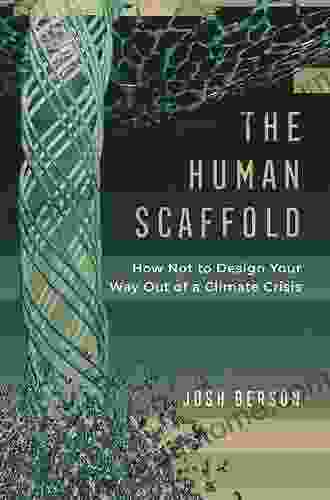
 Denzel HayesDesign Beyond the Climate Crisis: Essential Insights from "How Not to Design...
Denzel HayesDesign Beyond the Climate Crisis: Essential Insights from "How Not to Design...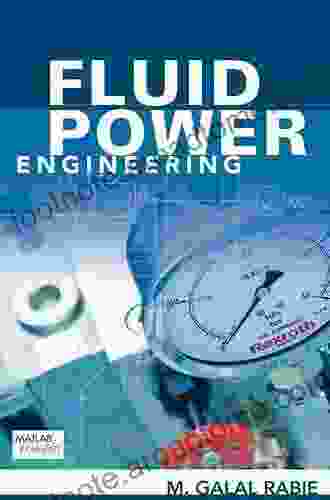
 Michael ChabonUnlock the Secrets of Fluid Power Engineering with Galal Rabie's Masterpiece
Michael ChabonUnlock the Secrets of Fluid Power Engineering with Galal Rabie's Masterpiece
 Bret MitchellWelcome to Your World: A Life-Changing Guide to Self-Discovery, Purpose, and...
Bret MitchellWelcome to Your World: A Life-Changing Guide to Self-Discovery, Purpose, and... Diego BlairFollow ·6.2k
Diego BlairFollow ·6.2k Ibrahim BlairFollow ·13.7k
Ibrahim BlairFollow ·13.7k Patrick RothfussFollow ·3.1k
Patrick RothfussFollow ·3.1k Allan JamesFollow ·15.4k
Allan JamesFollow ·15.4k J.D. SalingerFollow ·5.2k
J.D. SalingerFollow ·5.2k Ralph Waldo EmersonFollow ·17.4k
Ralph Waldo EmersonFollow ·17.4k Eli BrooksFollow ·12.8k
Eli BrooksFollow ·12.8k Fabian MitchellFollow ·11.8k
Fabian MitchellFollow ·11.8k

 Charles Bukowski
Charles BukowskiUnlock Your Entrepreneurial Potential: Start Small,...
Are you ready to embark on an exciting journey...

 Braeden Hayes
Braeden HayesUnveiling the Extraordinary Tale of "Weird Girl With...
A Journey of...
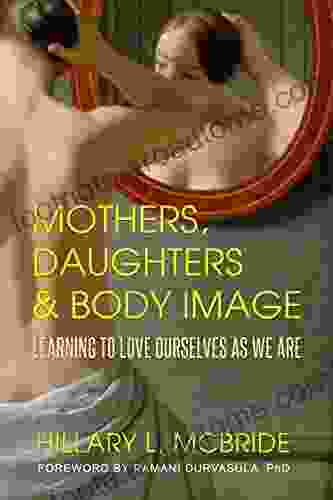
 Shawn Reed
Shawn ReedLearning To Love Ourselves As We Are: A Journey Towards...
In the tapestry of life, self-love emerges...
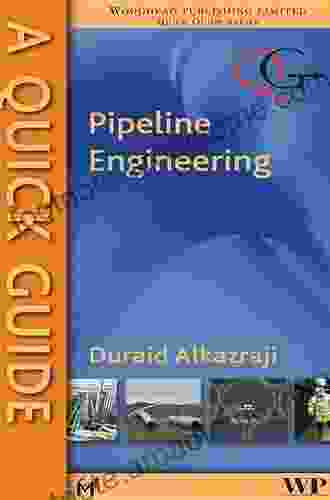
 Allan James
Allan JamesQuick Guide to Pipeline Engineering: Your Gateway to...
Welcome to the realm of...

 Beau Carter
Beau CarterLife With and After an Addict: A Journey of Understanding...
Addiction is a complex and devastating...
4.5 out of 5
| Language | : | English |
| File size | : | 685 KB |
| Text-to-Speech | : | Enabled |
| Screen Reader | : | Supported |
| Enhanced typesetting | : | Enabled |
| Word Wise | : | Enabled |
| Print length | : | 167 pages |
| Lending | : | Enabled |


